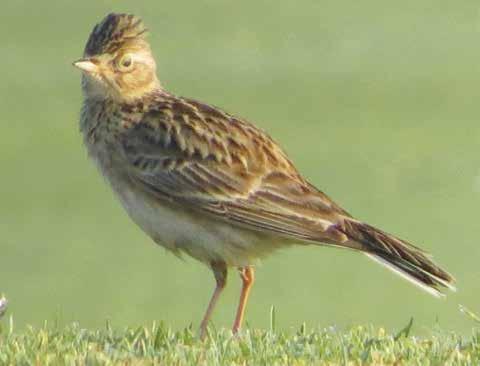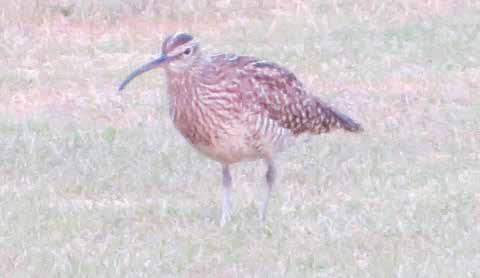
3 minute read
RSPB Ipswich Local Group
The Covid-19 pandemic has forced our group to suspend all indoor and outdoor activities until January 2021. We received word back in March to close down all our activities until September, and once the time for review came from headquarters in Sandy, it was decided that there would be no further activities for the rest of 2020.
We’re not the only organisation to have to write the year off, far from it, but with nature playing a large part in getting people through the lockdown we would have been in a good position to increase our membership. For many people stuck at home, watching the birds at the bird table or taking daily exercise in the fresh air was some solace amidst all the uncertainty of life. I have discovered the birdlife in my
Advertisement
Ipswich Local Group Group Leader Tim Kenny Tel 01394 809236 ipswichrspblocalgroup@yahoo.com www.rspb.org.uk/groups/Ipswich
Ipswich RSPB Local Group is for everyone interested in birds and other wildlife in the Ipswich area and beyond. Come along to our indoor talks, held monthly between September to April at Rushmere St Andrew Church Hall, or (throughout the year), get out and experience nature first hand on one of our regular field meetings, visiting some of the best spots for wildlife in the area. Three times a year the ‘Orwell Observer’, keeps readers abreast of the latest developments at nearby RSPB Reserves as well as news of Group activities, along with members’ photographs and accounts of birding exploits from home and abroad. Membership costs £3 per year (£1 for Juniors). For more information see the Events Diary in this magazine, visit our website or write as per details above.
local area, surrounded by the industry of Felixstowe docks, and to my surprise it holds bullfinches, common buzzards and butterflies galore when the sun shines.
I made a few early morning starts and found a flock of thirteen whimbrel on the golf course at Felixstowe Ferry. This member of the curlew family occurs in our part of the world on passage between its arctic breeding grounds and more temperate winter quarters. It is noticeably smaller than the Eurasian curlew, with a less curved bill and a distinctive striped crown pattern
Skylark, 15th May 2020, Felixstowe Ferry golf course
I’m in the wrong hobby) but I was very fortunate on one early morning to be on hand when a short-toed lark was discovered at Landguard Common. I was one of only two people to see the bird (the first being the finder) but fortunately I had some familiarity with the species from previous trips to Spain. Like so much of birdwatching, it was a case of being in the right place at the right time, and seven in the morning is rarely the right time for me!
One thing that has been done is the installation of swift boxes, three now adorning my eaves with another three at a relative’s house in Ipswich. I’m hoping that a few more friends and family take the plunge and help out this struggling species. The man who makes the boxes told me that he’d constructed over 220,000 in his career, equivalent to around 30% of the breeding stock in the country. As I write this in early August, the swifts are heading back south, giving me time to find and install a suitable sound system for next spring, in the hope of attracting new tenants.
If you want to find out more, search SOS Suffolk Swifts on the search engine of your choice.
To end, back to those early spring mornings down at the golf course. It was gratifying to see and hear good numbers of skylarks there, clearly benefitting from the closure of the fairways and greens. This one posed beautifully for me.
It’s been a difficult time in all of our lives.
Stay safe. Tim











